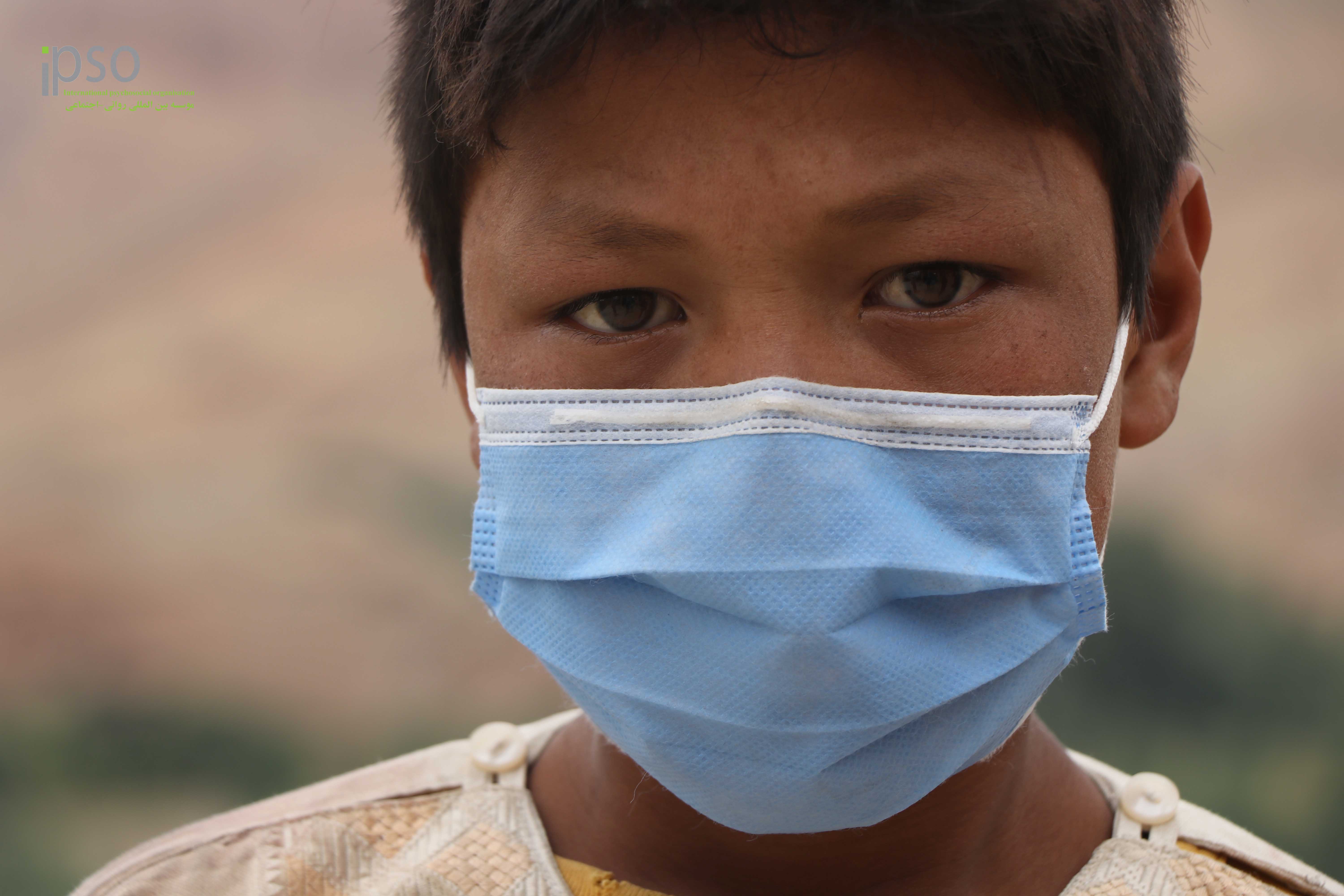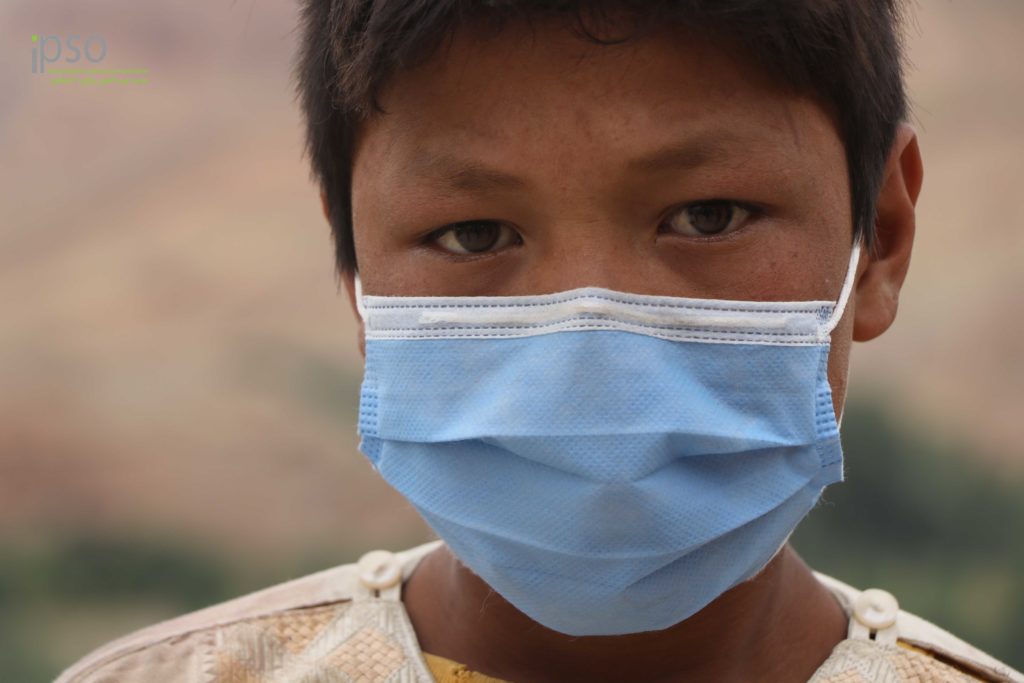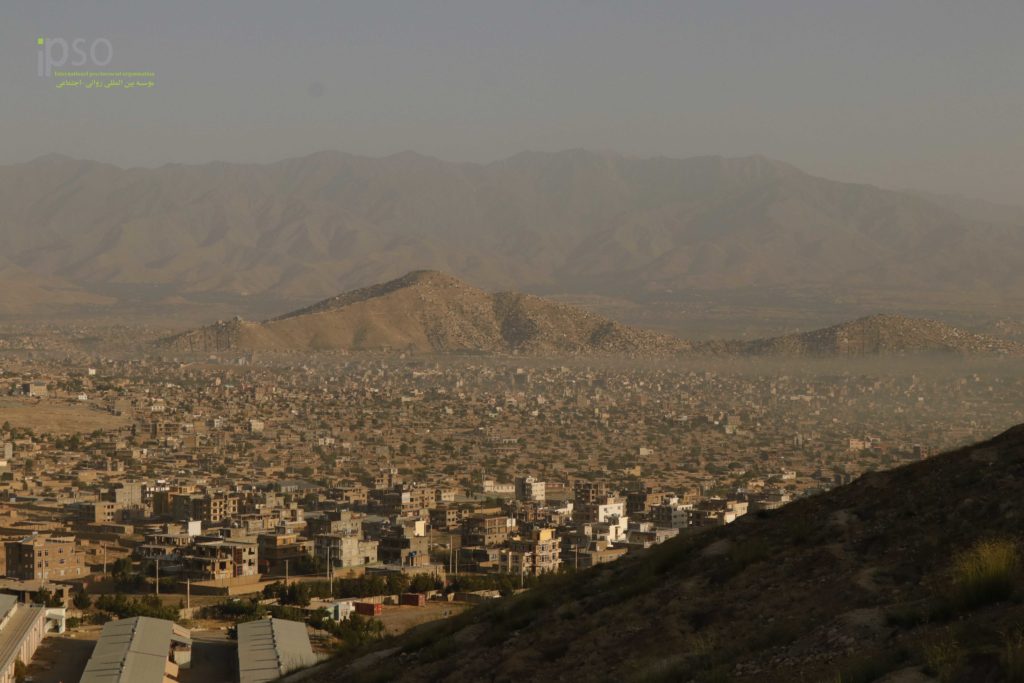Before the quarantine, Hasan would head out every morning on the streets of Kabul with a tiny tin of hot coals on which he’d sprinkle seeds of espand (a plant also known as wild rue) so that they popped and burned. Hasan would fan the resulting smoke towards occupants of vehicles in the traffic or those out shopping, in the belief that this would dispel evil spirits. If he was lucky he would receive 5 Afghanis from each car or shop, and take home around 150 Afghanis (2 USD) at the end of the day to help feed his family. Only 12-years old, he’d had to stay at home for almost three months during the quarantine. His father is disabled and unable to work, so Hasan’s earnings help supplement what his mother and two sisters get paid for weaving carpets.
Now Hasan is back in the streets, weaving between cars in the traffic, but holding a bundle of masks in one hand with a piece of paper in the other with the words BUY A MASK AND PROTECT YOURSELF scrawled on it. He hopes to persuade drivers and passersby to buy and use masks for their own safety, while also making some money.
“Despite our difficult financial situation and a shortage of food, my mother forbade me from going out on the streets during the lockdown” he explains. “Instead, I helped her and my sisters with carpet weaving as it was safer to stay indoors. But now I can finally earn something again on the streets and bring money home for the family.”
The months of lockdown has had a serious impact on poor families, most of who rely on daily income for their survival. The restrictions also meant that the prices of food and basic goods in Kabul and elsewhere soared. Hasan says: “While we were being advised to eat nutritious food like fruit to avoid getting the virus, in our house meals became less nutritious as we could not afford such luxuries.”
With the restrictions in Kabul being gradually eased since late May, many businesses and offices have re-opened, and now operate in accordance with health guidelines. Tens of thousands of daily laborers and taxi drivers are also back at work in Kabul and other places, along with many street vendors like Hasan, who need to make up for months of lost earnings so that they are able to provide for their families. This despite official warnings that the numbers of infected people are still on the rise and that a second wave is likely.
“Corona is still out there but since restrictions are lifted, I decided to go back to work. At first, my mother didn’t allow me, but I assured her that I would take care of myself by wearing a mask. She then suggested that I should sell masks instead of burning espand, as this would also encourage people to wear masks and might be more profitable.” Hasan explains, adding “I agreed with my mother’s idea and wrote with a marker on a piece of paper in big letters BUY A MASK AND PROTECT YOURSELF to attract the attention of drivers and passersby. I’ve encouraged my friends who also burn espandi to do the same.”
Across Afghanistan, more than two million children between the ages of 8 and 14, and mainly from poor families, are obliged to work to support their families – as espandi, street vendors, hawkers, shoe-shiners, washing cars or assisting mechanics. The impact of the virus on their lives has been dramatic but some, like young Hasan, are showing initiative and adapting to the ‘new normal’.













